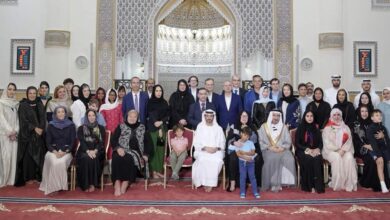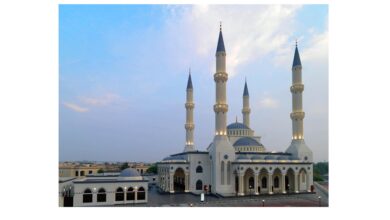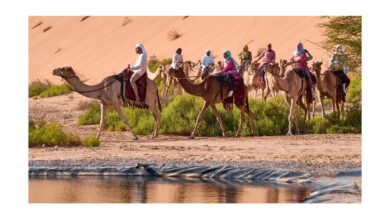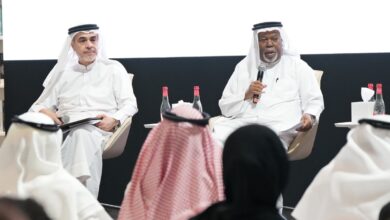Sharjah, United Arab Emirates – November 7, 2024: Under the patronage of H.H. Sheikh Dr. Sultan bin Mohammed Al Qasimi, Supreme Council Member and Ruler of Sharjah, the Arabic Language Academy in Sharjah held a press conference during the 2024 Sharjah International Book Fair. The conference announced a historic achievement: the publication of 127 volumes of the Historical Dictionary of the Arabic Language, the first of its kind in the Arab world. This dictionary documents the evolution of Arabic vocabulary and meanings across centuries, aiming to preserve linguistic heritage and strengthen the connection between future generations and the language of their ancestors.
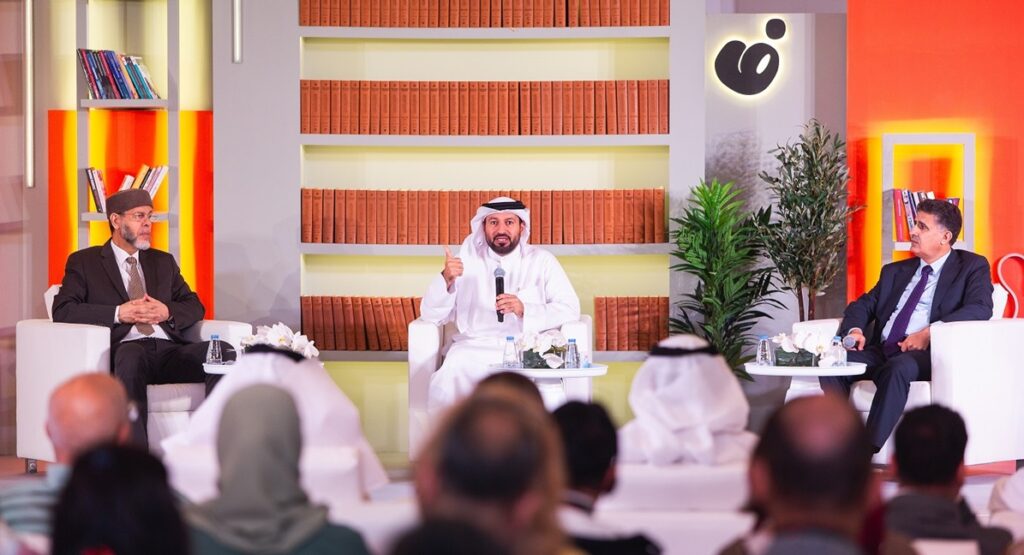
A Global Celebration
In a written address to the conference participants, His Highness Sheikh Dr. Sultan bin Muhammad Al Qasimi stated:
“The completion and printing of the Historical Dictionary of the Arabic Language is a celebration for both the Arab and Islamic worlds. Language is a civilizational vessel that carries the history and culture of this nation. This dictionary serves as a cultural and intellectual reference, documenting the history of Arabic words and the evolution of their meanings, thereby strengthening Arab cultural identity and making our language accessible to future generations.”
He added: “This achievement could only have been realized through fruitful cooperation between Sharjah and various linguistic institutions across the Arab world. The dictionary project is a fundamental step towards enhancing the Arabic language as a comprehensive civilizational vessel that records the knowledge and history of the nation.”
Sharjah’s Pivotal Role
Led by His Highness Sheikh Dr. Sultan bin Muhammad Al Qasimi, Sharjah played a pivotal role in transforming the vision of the Historical Dictionary of the Arabic Language into reality. The emirate provided extensive financial, logistical, and moral support throughout all stages of the project. Thanks to this unwavering commitment, the dictionary has become a comprehensive linguistic reference for researchers and Arabic language enthusiasts worldwide.
Distinguished Attendance
The press conference witnessed the presence of prominent cultural and literary figures from the UAE and the Arab world. Attendees included heads and members of writers’ and intellectuals’ unions, alongside prominent local and regional media personalities, as well as a group of academics and researchers specializing in Arabic language and history. The event also saw the participation of senior figures in the cultural field, underscoring the importance of the Historical Dictionary of the Arabic Language as a unifying project for the Arab world’s linguistic and cultural heritage.
Key Statistics
The Historical Dictionary of the Arabic Language stands out as an extraordinary achievement in terms of scope and content. It includes approximately 73,000 entries, covers more than 21.5 million words distributed across 127 volumes, and relies on around 351,000 historical citations derived from 11,300 linguistic roots. The total number of pages amounts to approximately 91,000. Over 20 linguistic and academic institutions from various Arab countries contributed to this monumental work, making it a product of collective Arab cooperation that reflects the richness and diversity of the Arabic language through the ages.
Serving Arab Societies
The Historical Dictionary of the Arabic Language caters to a wide audience, including researchers, specialists, students, and even the general public who seek to understand the origins and evolution of Arabic words. By providing precise historical evidence, the dictionary enhances a deeper understanding of the Arabic linguistic heritage, helping to safeguard Arab cultural identity from foreign influences. It is not merely a tool for academic research but also a cultural gateway that allows future generations to connect their language to the rich civilizational heritage of the Arab world, fostering a sense of belonging and pride in their Arab identity.
Mohamed Hassan Khalaf, a member of the Board of Trustees of the Arabic Language Academy in Sharjah, remarked during the conference:
“The Historical Dictionary of the Arabic Language represents a pioneering step in preserving the cultural and linguistic legacy of the Arab nation. This ambitious project is not just a collection of volumes or encyclopedias documenting words and their meanings; it is a bridge connecting the nation’s past and present, providing future generations with a deeper understanding of the evolution of their language. At the Arabic Language Academy in Sharjah, we view the Historical Dictionary as a monumental achievement that serves not only one nation but all Arabic-speaking countries. It is a cultural unifier, proving that Arab cooperation can yield impactful projects with lasting influence.”
Dr. Amhad Safi Al-Mostaghanemi, Secretary General of the Arabic Language Academy in Sharjah and Executive Director of the Dictionary, emphasized the importance of this cultural milestone:
“The Historical Dictionary of the Arabic Language is the product of a profound scientific and cultural vision that transcends mere linguistic documentation. This dictionary reflects the academy’s ambition to provide a comprehensive reference that traces the development of the Arabic language from its early beginnings to the present day. With the support of His Highness Sheikh Dr. Sultan bin Muhammad Al Qasimi, we have been able to turn this dream into reality.”
Professor Mohammad Al-Saoudi, Coordinator of the Jordanian Team and university professor, highlighted the role of modern technologies in the project, stating:
“The Historical Dictionary of the Arabic Language represents a groundbreaking development in linguistic research. It offers researchers, scholars, and the public a reliable source to trace the evolution of Arabic words and their meanings across various historical contexts. This achievement required immense effort and collaboration among linguistic institutions across the Arab world, providing users with detailed historical evidence from classical and modern Arabic literature, religious texts, philosophical writings, and scientific works.”
Enhancing Cultural and Historical Identity
The Historical Dictionary of the Arabic Language embodies Sharjah’s commitment, under the leadership of His Highness Sheikh Dr. Sultan bin Muhammad Al Qasimi, to preserving Arab heritage and cultural identity. This dictionary is not merely a record of the language’s history but a tool that ensures the Arabic language remains dynamic and relevant while retaining its core cultural essence.
More than a linguistic archive, the dictionary serves as a bridge connecting younger generations to their linguistic roots. By tracking the evolution of vocabulary across centuries, the project strengthens cultural identity, making the Arabic language more accessible and vibrant for current and future generations. His Highness Sheikh Dr. Sultan bin Muhammad Al Qasimi highlighted this purpose, saying:
“We are here to serve the Arabic language and support its linguistic academies across the Arab world. Our goal is to ensure that the dictionary stands as a testament to the richness of this language and its ability to accommodate modern developments while preserving its core principles and cultural value.”
With this achievement, Sharjah has presented the Arab world with an unparalleled cultural project that elevates the Arabic language to a distinguished scientific and historical standing. The Historical Dictionary of the Arabic Language and the Comprehensive Arabic Encyclopedia serve as two cultural pillars, reinforcing cultural ties among Arab nations and documenting the history and shared heritage of the Arab world.


